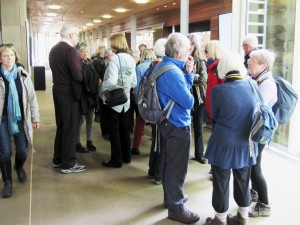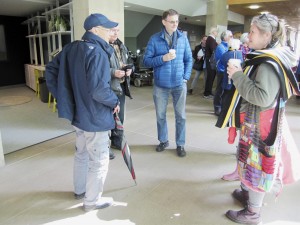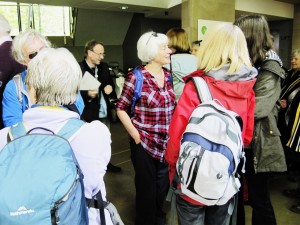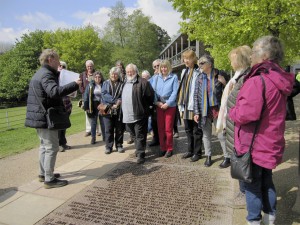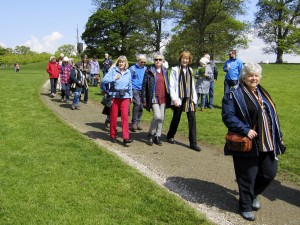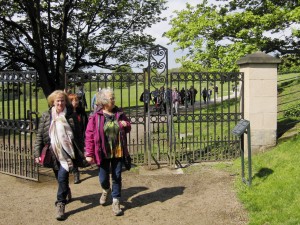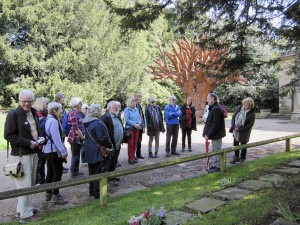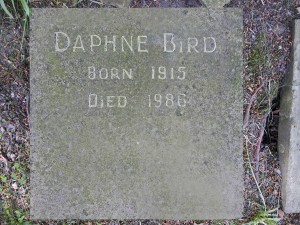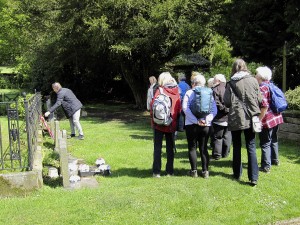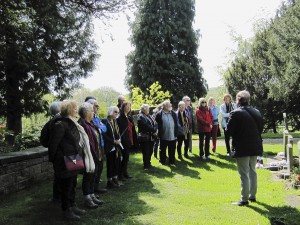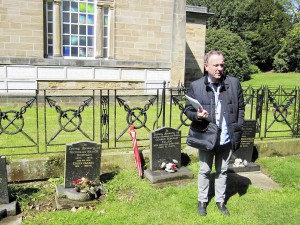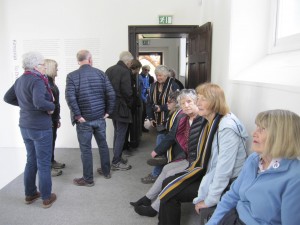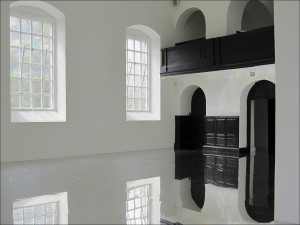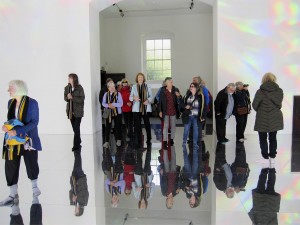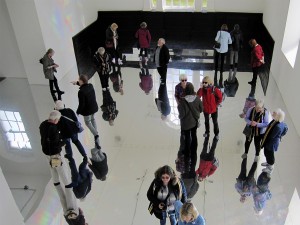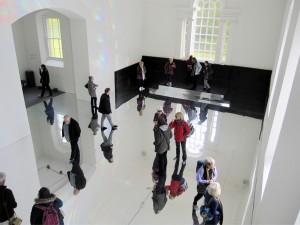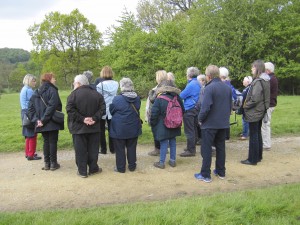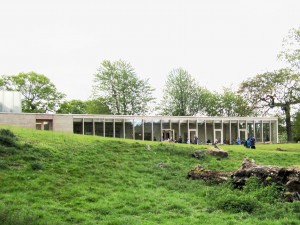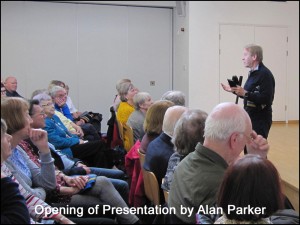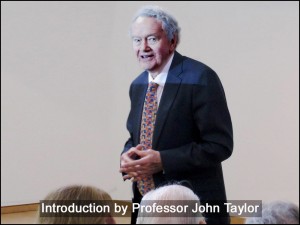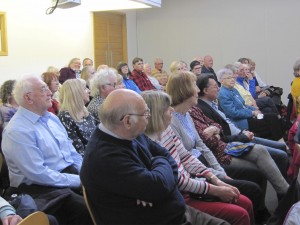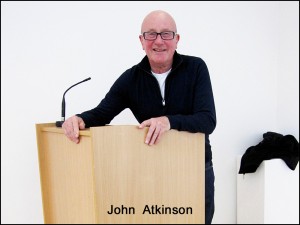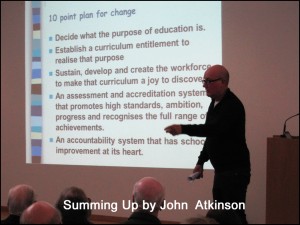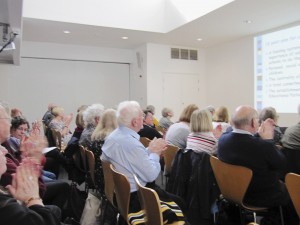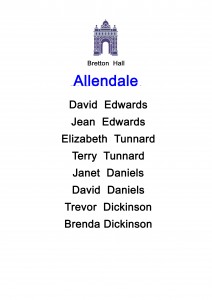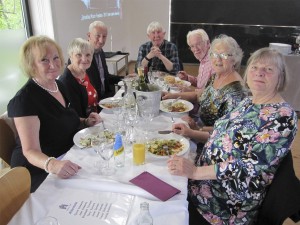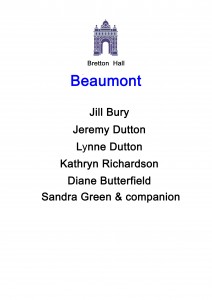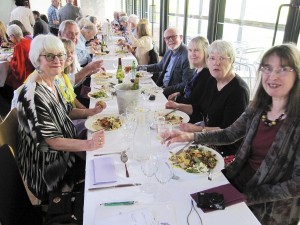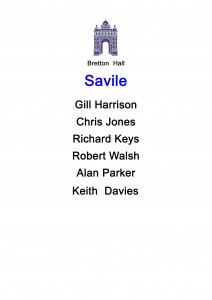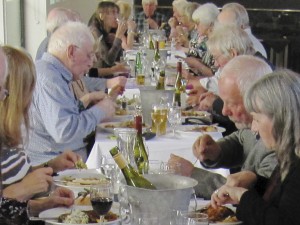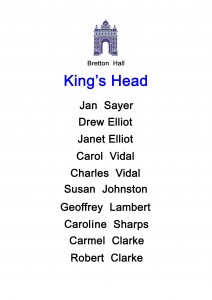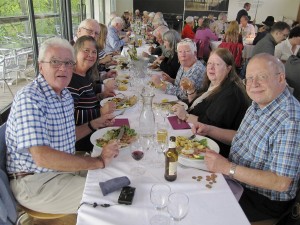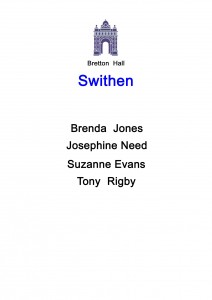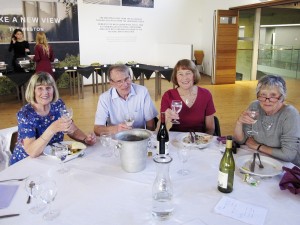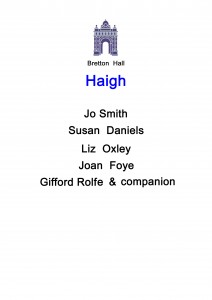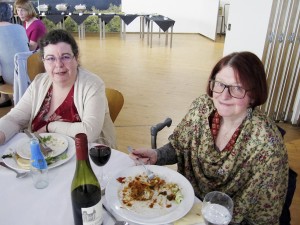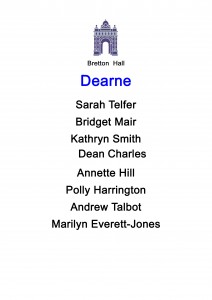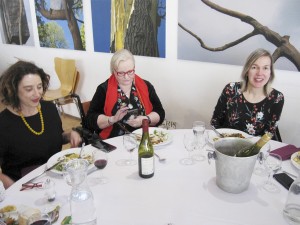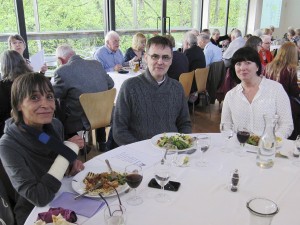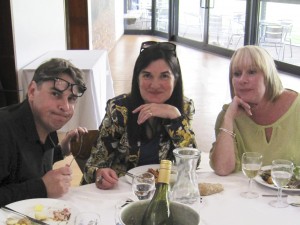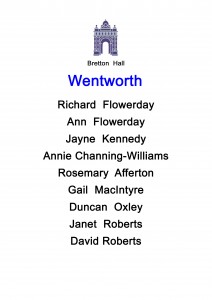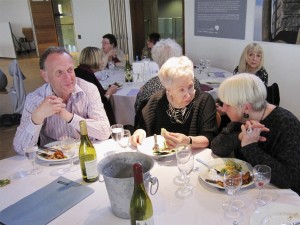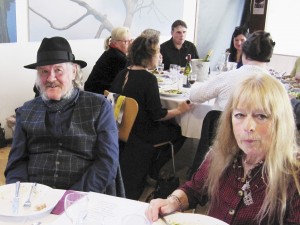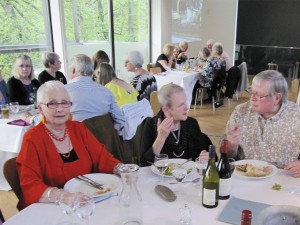Report of Reunion on 11th May
The Reunion 2019 was again very successful with over 50 people attending the afternoon talks and about 45 on two walks. Although the evening meal numbers were a little bit down on those of 2018, the atmosphere was a bit more relaxed, with people moving between tables and different year groups.
Reports and images for each activity are shown below.
Thanks to all of those who helped organise this event. The next Reunion will be on the 16th May 2020.
Alan Parker
Morning Walks
At 11 a.m. two walks took place - one led by Richard Flowerday and the other by Brian Pickersgill. Each group visited Bretton Chapel, where the gravestones of some former Bretton employees were identified .
Of particular interest was the commemorative stone of Daphne Bird, one of the foundation tutors, who worked at Bretton as Head of Music for thirty years.
Details were provided of the various owners of the estate, who were buried in the chapel graveyard.
Inside the chapel, alumni were impressed by the latest exhibit, entitled “To Breathe”, which was designed by Kimsooja – a South Korean conceptual artist.
Upon leaving the chapel, each group was led in turn to the Western Centre at the north of the Sculpture Park.
Tony Rigby
Afternoon Presentation
During the afternoon, alumni attended the lecture theatre for a presentation by John Atkinson, who was a former tutor at Bretton Hall College during the 1980s.
Initially, Alan Parker spoke about the latest developments at Bretton Hall and the expected reopening as a luxury hotel. Although no fixed date was yet available, Alan said that it was expected that Rushbond would issue a press release in the near future.
Professor John Taylor, who was Principal of the college from 1981 to 1993, introduced John Atkinson, who would talk on the theme of:
“50 years of Educational Change 1969-2019”.
Initially, John Atkinson spoke about changes in society over the 50 years’ period, with relevance to politics, morals and particularly in education. He reminded the audience of some significant educational initiatives from various governments such as: the 1944 Education Act; the 1967 Plowden Report; the 1981 impetus in catering for special educational needs; the Baker changes in 1988, and the introduction of the National Curriculum in the 1990s. He also commented in detail about the impact of OFSTED.
Having spoken at length about the perceived successes and failures of various educational practices, John posed the questions:
What is needed now?
Is it Reform or Revolution?

